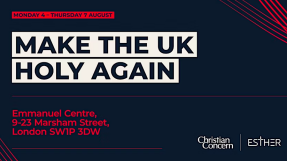MPs want faster drug appraisals
The proposals could add to pressure on drug prices in Britain, where the government is already renegotiating a pricing agreement with industry in a bid to get better value for money.
Since 1999, the National Institute for Health and Clinical Excellence (NICE) has led the world in measuring the cost-effectiveness of new treatments, and its actions are closely watched by other governments and insurers.
Parliamentarians said NICE played a vital role in rationing healthcare but they criticised the arbitrary nature of the threshold above which it deemed drugs as too expensive, which was higher that used by primary care trusts.
"The threshold at the moment is not rational ... it does not have any basis in hard science," Kevin Barron, chairman of the parliamentary health committee, told reporters.
NICE, as a general rule, recommends that medicines costing more than 30,000 pounds per quality-adjusted life year, or QALY, should not be prescribed on the National Health Service
(NHS).
A QALY is a statistical measure of a person's state of health, with one QALY equal to one year of perfect health or two years of half-perfect health.
In future, the committee suggested, a tougher QALY threshold should be used for an initial assessment of a new drug to ensure that only the most effective products are made available straight away.
The actual threshold should also be set by an independent body, taking account of NHS budget pressures.
DRUGMAKERS SLAM PLAN
Drug manufacturers - which have long seen NICE as a fourth barrier for drugs that have already been proved safe, effective and of good quality - condemned the plan.
"British patients already have worse access to new medicines than others in Europe," said Richard Barker, director general of the Association of the British Pharmaceutical Industry. quick and dirty' assessments of medicines against tougher cost-effectiveness hurdles will actually make this problem worse."
NICE itself welcomed the report, although Chairman Michael Rawlins added it would need to work closely with government and other stakeholders to discuss the feasibility of appraising all new drugs at launch.
The report also urged NICE to do more to weed out the use of older medicines that may no longer be cost effective, and it called for greater action to ensure that the agency's recommendations were actually implemented.













